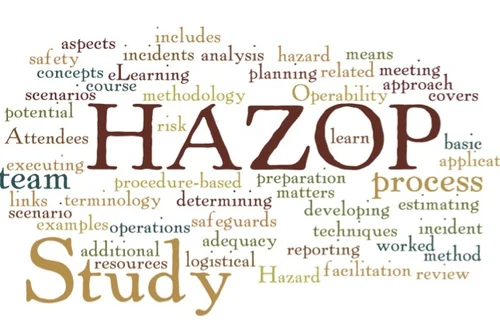The Most Common Financial Mistakes and How to Avoid Them

Any missteps towards the finances have a long-lasting impact irrespective of whether you are actively managing your business or personal finances. Although none becomes immune to the occasional errors, knowing about such pitfalls and undertaking proactive measures can notably boost your financial well-being.
A recent study found that by the end of 2024, about 47% of Americans will be living paycheck to paycheck, and about 37% of individuals are not comfortable with their overall emergency savings. For more details, around 20% of American adults over the age of 50 lack the right financial planning for retirement. This further emphasizes the importance of making smart financial decisions and implementing strategies that outrank all others.
Identifying the reasons why you need financial planning to overcome the common challenges can help in establishing a secure future. So, let us check out a couple of mistakes one makes in the matter of finances.
Money Mistakes People Make
Let’s review the entire list of things we will share that will help you avoid the mistakes you would make.
Having a Sloppy Budget (or No Budget at All)
People often overlook a common mistake that one often makes in maintaining and setting a realistic budget. If you wish to know how to start financial planning, a budget acts like the financial compass that guides you to achieving all the goals like reducing your debt, buying a home, or taking a much-awaited trip. But, the budget is sound as long as you are putting effort into building it. If you create a budget for the past year, things will fail to work out as you fail to keep track of the daily income and expenses as it is up to no good here.
Whenever the budget is left out seamlessly as the overlooked expenses or never allows you for the trips you make for occasional shopping, then it is impossible to follow. So, how to avoid unnecessary spending? It is important to keep aside some time to perform an audit while strengthening the budget. It is one of the best rules of thumb while establishing a budget, which is the 50/30/20 rule:
50% for needs (housing, car, healthcare, etc.)
30% for wants (entertainment, etc.)
20% to savings, debt repayment, and investments
Such involves flexible percentages. If you are keeping apart more than 20% of the income dedicated to savings, it is better to be off over the long term here. You can make use of the budgeting app that automatically captures your expenditure and helps with the maths.
Not Having a Solid Emergency Fund
American households lack funds to face unexpected expenses that exceed $1,000 despite their nature as water heater breaks, car maintenance, or medical situations. So, how can financial planning help you? An unexpected expense will force you to find alternative solutions, which include obtaining funds from loved ones or using a costly credit card.
An emergency fund serves as the most essential financial tool. According to professional recommendations, you should deposit money into it on a regular basis. Many people allocate funds from their paychecks toward building an emergency savings account. You should use a direct deposit system in the account because automatic payments prevent both forgetfulness and impulsive expenditures. The amount of savings you need depends on the cost of your household expenses for three to six months, so start by determining that figure.
Leaving Money On The Table
Your 401K retirement plan has matching fund options from your employer. The company provides discounted stock-buying options for its employees. So, how to recover from financial mistakes? You should seize any opportunity to collect money cost-free.
Your employer typically provides access to 401K retirement saving plans through benefits programs, which also include a certain match on employee contributions. Your employer gives 3% income matching contributions, but you miss out on it, which equals to bid farewell to a portion of your salary.
Workplace life insurance benefits require setting beneficiaries before they become useless. Your compensation package includes benefits, so you need to find ways to achieve maximum value from all available benefits.
Overusing Credit Cards
Using a credit card effectively for credit improvement purposes requires moderation because excessive access can lead to financial strain. So, how to take control of your finances? Most people fail to recognize that their minimum monthly payments only amount to interest charges. Using your credit card responsibly generates multiple advantages, yet exceeding your financial capacity will lead to problems.
Large existing credit card debts do not prevent you from recovering your fiscal situation. Hold your credit debt down by using a personal loan through an online service or low-interest rate balance transfer credit card functions to decrease your account balances. As you build your credit score, search for a credit card with a rewarding points program and competitive interest rates, which you should pay in full each month.
Ignoring Your Credit Report
While many people believe that ignoring something makes it disappear, this actually harms their credit scoring system, so here it is important to know what is credit control in finance. This remains one of the major financial mistakes people frequently make. Lenders review credit reports during the loan process to decide both lending permission and terms for borrowers.
Landlords, along with employers, have access to view your credit report records. An unsightly error or surprise in your report will have a profound negative effect on your financial stability. The high interest rates lenders can impose will lead to loan rejection in some cases.
Every credit bureau must provide you with one complimentary credit report per year at annualcreditreport.com. Start your inquiry disagreement process through immediate contact with credit bureaus whenever you find errors on your report.
Neglecting Retirement Plans
Earning money allows you great ease in taking care of both your family members and yourself. Surviving on your own during periods of employment absence presents a unique situation.
One should never become dependent, so the first step is to begin saving for retirement, dating back to one’s early years of work. You should allocate all income obtained through employment to funding your non-working periods. Make sure you establish retirement funding as you have not begun saving yet.
Unplanned Finances
If you do not have a plan for building your dream empire, cutting down on debt, or saving effectively, you will progress slowly toward achieving your goals. Uncontrollable finances hinder you from improving your profile in life. A month and a year from now, you will have what you want to achieve and how you plan to achieve this financially, making you reach your expected goal.
Increasing Debt
This is a problem for an individual with respect to debt. The second question is how to reduce debt, but the first question should be how to prevent an increase in debt. You don’t need to have debts, but that doesn’t mean you cannot. Some debts help you build wealth early in life, but not too much can deprive you of a financially healthy life.
It also means to become debt-free and work toward that deadline. Never spend more than you earn or earn less than you spend. The key is learning and evolving.
Spending Money On Unnecessary Things
One mistake that the majority of people make is to spend too much on unnecessary things. Most do it is inevitable, but now, if you pause a little to see your expenditure on such things, you will notice you will be able to save a little or spend on things that you really necessitate than this one.
Do not just go and burn money on things that do not matter. First of all, in order to make the best of your money, you need to cure overspending.
Foregoing Life Insurance
No one wants to contemplate death. Don’t make the mistake of not planning for the security of your loved ones in case something unexpected happens. The average funeral costs $8,300. Life insurance wouldn’t only assist your family in paying the costs of your passing as help them understand that they possess what funds are essential to assist them in navigating generally troublesome periods once you’re not on the scene anymore.
Priced life insurance is inexpensive for healthy adults, and the sense of security that comes with it is priceless. One of the smartest things to do is know that your loved ones have the resources to thrive when you’re gone.
Not Saving Adequately
People are making a huge mistake by not saving, and also, they need to realise that savings are a must. You must understand that life is a bumpy ride. However, there is always a benefit to wearing a belt when the road is steep.
If this is a savings rule, you follow the 20% savings rule effectively; this may work for you. Nevertheless, before saving properly, you ought to do the math and assume you’re tuned in to reality.
Investment Made On Speculations
This is something beginning investors always make while investing. They guess where to invest and invest despite the speculations and rumors, expecting to get money, but in the process, they lose money.
Proper analysis of the investment and consideration of the risks involved should be conducted. Do not invest just because someone recommends it, and do not rely solely on speculation.
Unnecessary Subscriptions
We all waste money on things like this. We sign up for something every single year and don’t bother using it to its full potential. This would sound very true to the so-called gym freaks.
The only thing will be taking the money for the whole year, and going there irregularly is a waste of money. Similarly, the subscription of the set up box is the same. When choosing, instead of using every channel, you may cut down the amount you spend if you pick the channels you watch frequently.
Not Having A Plan To Manage Your Debt
The enemy of debt is not debt, it is just debt managed well. If you do not have a plan, then you may pay the minimum on your credit cards. In other words, you may end up killing your credit utilization ratio unnecessarily by using up all your credit cards. Finally, if you do not have a plan in place to build a healthy credit profile at your disposal, the process of getting a loan will be really tough.
To solve this, you should define your goals and select the best plan. So, if you are looking to pay down high-interest credit card debt, a debt consolidation loan (where you take out a single loan to pay off all your other debts) is a good option. You may use debt snowball instead. Either way, you will be better off having a plan to deal with your debt.
Conclusion
If you’ve made any of the money mistakes we’ve outlined here, don’t worry–you can learn to turn it around with some help from these money management tips. You can always get help no matter where you are in your financial journey. It takes time and effort to stay on top of your finances, but it’s worth it. So, if you’ve made financial mistakes in the past, correcting them will put you on the path toward financial wellness around the corner.







